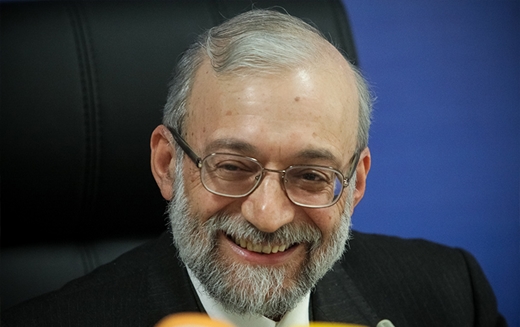The secretary of Iran’s Human Rights Council has described Supreme Leader Ayatollah Seyyed Ali Khamenei’s message to the youth in Europe and North America as a shrewd step toward developing a mutual understanding with the world.
Mohammad Javad Larijani drew a comparison between the leader’s message and the letter of the late Imam Khomeini to the Soviet leader and said, “Imam’s message was addressed to officials and pundits; the leader’s is aimed at the public. The two are interrelated though.”
The following is the translation of part of what Larijani, who was a member of the three-man team that delivered the late Imam’s letter to Mikhail Gorbachev, said in the interview reported by Khabaronline on February 5:
The leader’s message to the youth, which has new features, deals with the West’s expansionist policies and its showdown with Islam.
The Islamic Revolution is one major reason why Westerners are sensitive to the political Islam model we have championed. Islamic Awakening is one of the phenomena the Islamic Revolution set in motion in the world of Islam.
Confrontation with the Muslim faith is being pursued vigorously in the West. A victory for Iran in this confrontation would result in the revival of the faith the West is so afraid of. They were hopeful Iran’s Islamic model would not find its way beyond Iranian borders.
In Egypt, for instance, the popular movement turned into a revolution followed by formation of a government. But the Muslim Brotherhood could not offer what Egyptians favored and anticipated. People were allowed to choose between two options: a secular system – like Turkey’s – and a Salafi system. But they wanted neither of them. In other words, efforts to establish a government failed, but the movement has not failed yet.
The leader’s message to the youth, which has new features, deals with the West’s expansionist policies and its showdown with Islam.
That they say the Islamic Awakening movement has foundered is not true, because the yardstick on this question is Iran [whose Islamic Revolution continues to inspire people]. An Islamophobia project has been set in motion. Paris terror attacks are just one act in this long-running play. For sure, it’s not the first one, nor will it be the last.
How can one reveal what is unfolding behind the scene? The path the Supreme Leader has chosen [writing a direct letter to the Western youth] is shrewd. When the youth fathom the message, they will pose the following question: ‘Is the West entitled to pursue terrorist acts, create ISIL and pit terrorist groups against people?’
That’s why people in the West, the youth in particular, should understand that Islam and freedom are not the main points here, and that the image they have painted of the Muslim faith has nothing to do with genuine Islam. What they are depicting is an American-style Islam. The late Imam [Khomeini] once said: They [the West] tarnish Islamic principles through their own agents.
You see that under a flag which bears “There is no god but Allah”, which is the most popular slogan in history and is all about monotheism and freedom-seeking, [a reference to the black flag of ISIL under which members of the notorious terrorist group brutally behead their hostages in the name of Islam] the terrorists decapitate people as they shout ‘God is the greatest’.
So when people in the West hear this slogan “There is no god but Allah”, they automatically recall the beheading of an innocent person. These are new techniques through which they enslave people by engineering the public opinion.
When the Islamic Revolution emerged victorious, nobody would have imagined that its message would one day gain traction.
The Leader’s message is very significant for the future of the West. If you take a look back at history, you will learn that the Great French Revolution [1789-1793] to which the Western history is greatly indebted had three key slogans.
Number one is equality which bans the exploitation of others at the hands of one group. But equality is non-existent in the West today. Those who are rich hold power.
The second slogan is liberty. In the West, liberty is treated as a petty issue, and you are not allowed to challenge or examine the rationality or foundations of things. “There is no compulsion in religion” says you should not impose an ideology on us; let us decide – as humans – to be laic or religious persons. There is no such opportunity to choose [in the West].
Fraternity is the third slogan which is nowhere to be seen in the West today. In one world war, for instance, as many as 56 million people were killed. Acts of violence – which were later committed during the Vietnam War and has since been repeated – civil unrest, racism, self-centeredness, and egomaniac behaviors in a country which claims to be the cradle of freedom are all the direct result of this civilization. Such a civilization is doomed to fail and its prospects are not bright.
We need to be patient [for the leader’s message to sink in]. Words are like seeds which are sown; they grow gradually. When the Islamic Revolution emerged victorious, nobody would have imagined that its message would one day gain traction. Truthful words will definitely grow, especially through modern devices, and rational, simple, fluent and dialectical literatures.
Explaining well-founded knowledge in a simple language is an art. The holy Prophet (PBUH) spoke in a way that everyone could understand depending on their knowledge.
The content of this message [the Leader’s] shows a new method has been utilized. It should be promoted. Perhaps it is the first time after the revolution that we use this language to develop a mutual understanding with the world.
